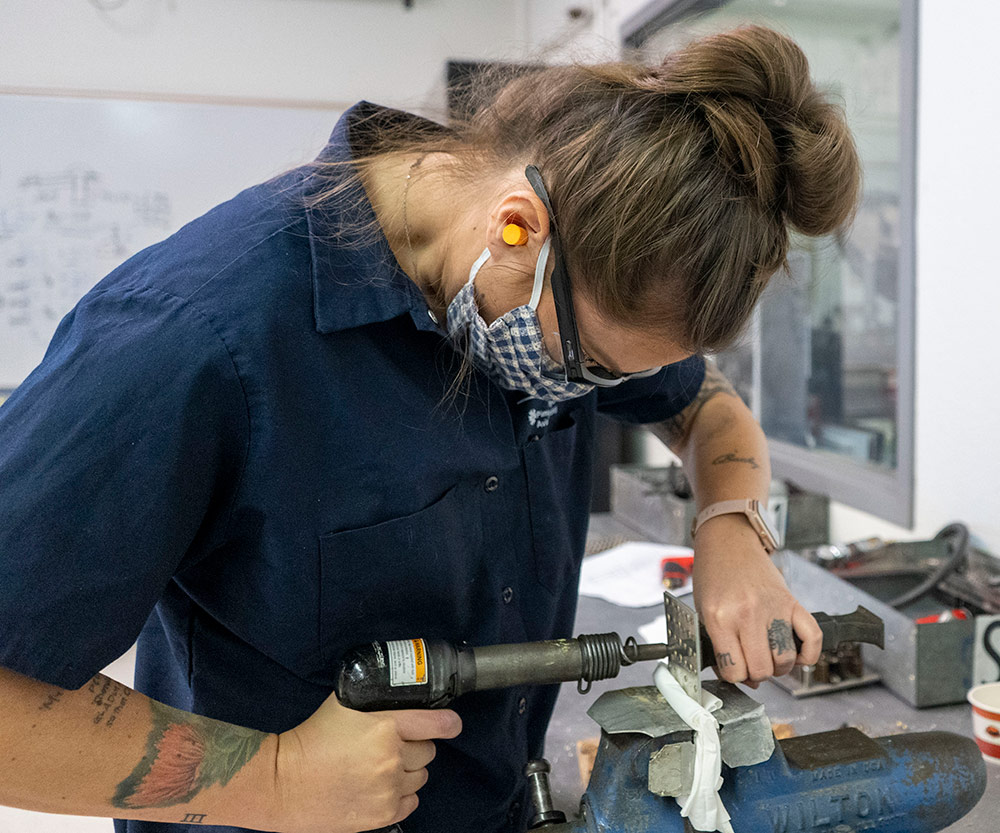
Choosing a Degree or Certificate
(Choosing a Major)
You may be starting college with only a vague idea of what to choose as a major (i.e., degree or certificate) and what to do as a career. If you do select a major early on, you may find that your choice of major will change as you take courses. That’s OK!
However, if you have a specific area of study that you know you enjoy, declaring a major gives you a goal, keeps you focused and motivates you to study.
Major vs. Career
Your choice of major should reflect a field of study in which you have a genuine and enduring interest. Use the education you get to develop a career that gives you satisfaction.
Many careers in occupational fields don't require specific majors, so you don't have to choose a career that matches your major.
When deciding on a career or major:
- Investigate what skills you will learn in specific fields of study and how they will apply to the career choices you might make later.
- Find something you enjoy doing, and don’t put excessive emphasis on salary and prestige.
- Consider your own talents and interests, rather than letting career fads or courses rumored to be easy dictate your choice.
- Follow your passion; learn what you love to do and go for it.
Choosing a Program of Study
Your program of study should reflect an area in which you have a genuine and enduring interest. Developing skills and knowledge in your program of study is the foundation for your career path.
If you have a specific area of study that you know you enjoy, declaring a program of study connects you with a dedicated PCC academic advisor, gives you a goal, keeps you focused and motivates you to study.
PCC counselors can help you explore and choose a program of study that works for you.
Other Avenues for Exploring
There are lots of ways to explore your interests and gain experiences that can help you make a decision. Here are some suggestions:
- Look through PCC’s programs of study.
- Use the Career Coach tool, discover majors, in-demand jobs, and explore programs at PCC based on your interests.
- If you are currently in a program, talk with your assigned division-based advisor about career and/or transfer options.
- Read course titles and descriptions in the programs you’re considering.
- Take an introductory course in a potential program of study.
- Take a Student Success course to help you develop academic readiness skills.
- Join a student organization or volunteer in a field you’re interested in.
- Set up informational interviews or job shadows with local employers for a first-hand look at jobs you may be interested in.
Career Counseling
Take advantage of PCC’s resources to identify and gain insight into your interests, skills, values, personality and other factors that help you choose a major and set career goals.
- Use the Career Resources on the MyPima > Student Resources tab
- Visit a library
- Meet with a College Career Counselor
- Take a Student Success (STU) course your first semester:
Course Descriptions
Course descriptions can help you find interesting and exciting careers and majors. Here's how to do the research:
- If you plan to transfer to a university, look at its upper-division (300 and 400 course numbers) courses and descriptions.
- For occupational programs, look at PCC courses above the introductory level.
Other Avenues for Exploring
- Research several career possibilities and academic majors.
- Participate in student organizations or volunteer at agencies linked to a major in which you're interested.
- Shadow someone in your career interest.
Contact Career Counseling
Fill out our contact form.
